Anfield’s first walkout in the club’s history took place in 2016 over rising ticket prices, one which proved key for the Liverpool we see today.
What was met with instant disdain soon turned into a fan movement and with it created a sliding doors moment for owners FSG, Liverpool Football Club and its supporters.
On February 2 2016, Liverpool announced their new ticket pricing structure for Premier League games for the following season.
The announcement saw season tickets in the new main stand reach a staggering £1,029 with individual games seeing a number of seats priced at £77.
A statement released by Spirit of Shankly, the Liverpool FC Supporters’ Committee and Spion Kop 1906 immediately left no question as to where they stood with the news.
“In the context of the huge income rises the club will receive next year, to up their revenue from fans through season and matchday tickets is both unnecessary and morally unjustifiable,” a joint statement read.
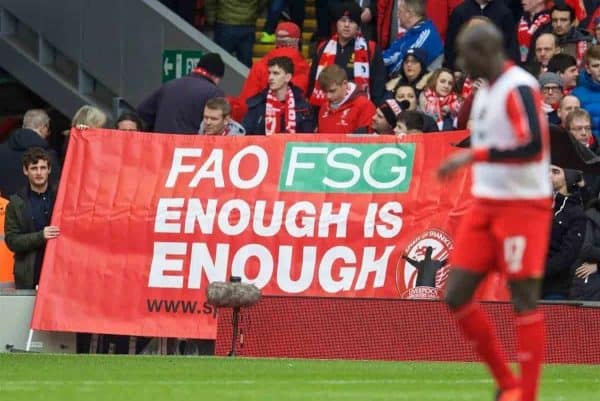
At a time of ever-increasing commercialisation and commodification of football, fans were again set to be exploited for their unwavering loyalty as the bottom line superseded that of the lifeblood of the club.
The club was fractured, the relationship between the fans and the owners was at breaking point as questions and distrust of FSG’s long-term plans were questioned.
It was an opportunity missed for John W Henry and Co. to set the standard and a precedent that the marginal gains from a rise in ticket prices, in the greater scale of income sourced from elsewhere, was not greater than the need to ensure a seat at Anfield was affordable for the many, not the few.
A plan was swiftly set in motion. Fans were urged to leave their seats in the 77th minute league meeting with Sunderland in protest of the rise from £59 tickets to £77.
Spion Kop and Spirit of Shankly led the calls prior to the game:
“Sunderland at home on Saturday, the first stage of many planned protests against the club in regards to the ticket prices at Anfield for the 2016/17 season.
“LFC think it’s acceptable to make more money than ever before from supporters. £2million more. That means price rises for many.
“Every week we get right behind the team. Now supporters need to get behind each other. Let’s make sure the owners know this is unacceptable.
“Love the team – Hate the prices. #WalkOutOn77.”
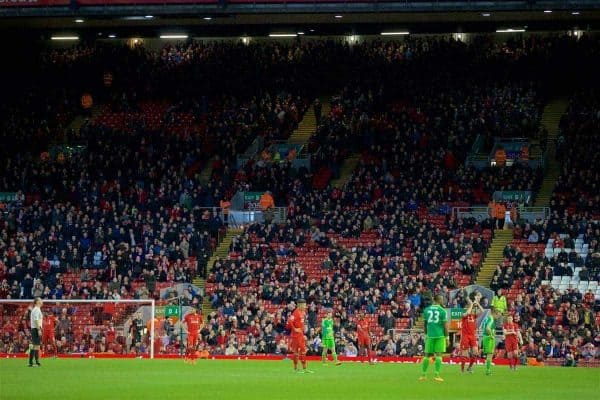
The move was as momentous as it was historic. Never had Anfield itself seen fans walk out of a match in protest, but the surrounding areas had borne witness to demonstrations against previous owners Tom Hicks and George Gillett in the years prior.
And so, on February 6, 2016, with Liverpool 2-0 up against Sunderland, an estimated 10,000 people made their way to the exit in the 77th minute.
“Enough is enough, you greedy bastards, enough is enough,” rang out from the Kop, with their voices and feet doing the talking after having had waved black flags prior to kickoff.
The Reds would go on to surrender their lead as Sunderland struck twice in the last eight minutes to see the game end 2-2, but, ultimately, the result was secondary as what took place in the stands proved decisive.
It’s important to note that there was rightly differing stances on the issue between those who walked out and those that did not, but in the end, the message was received loud and clear.
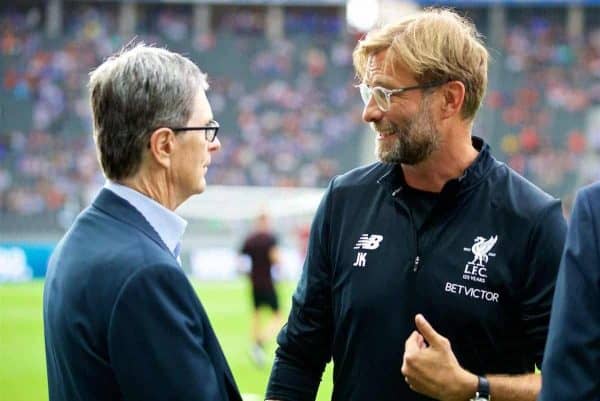
Four days after the protest, FSG performed a U-turn and issued an apology to supporters for “the distress caused by our ticket pricing plan,” conceding that “part of the ticketing plan we got wrong.”
The plans were, therefore, abandoned, with the price ceiling remaining at £59 for a matchday ticket and £869 for a season ticket in the new main stand.
The controversial pricing structure had threatened to derail Jurgen Klopp’s calls for unity between the fans and the club before it ever truly got started.
The manager himself was in the hospital getting his appendix removed during the game, but FSG’s correction of their mistake proved pivotal in ensuring the unity the boss was starting to curate was able to blossom into the togetherness we see across all levels of the club in present day.
It would prove to be one of FSG’s last missteps and while not a time to reflect back on fondly, their failure and the subsequent call to arms and the owners’ backtracking triggered greatness and an unwavering unity to be born and harnessed in the years to come.
* This is part of a new series aimed at filling the void without football, looking at the greatest moments in the history of the Reds. We’ll be publishing new stories from Liverpool’s glorious past each day at 7am and 7pm (UK).

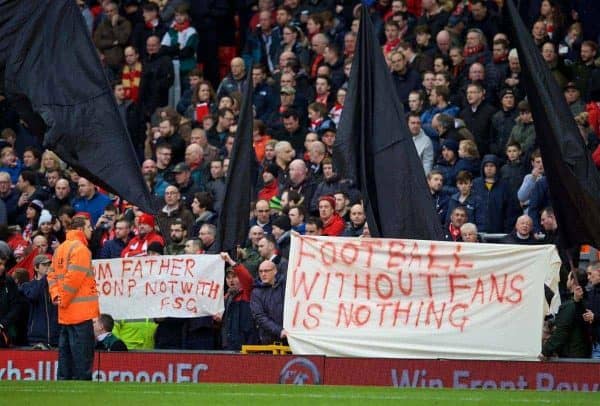







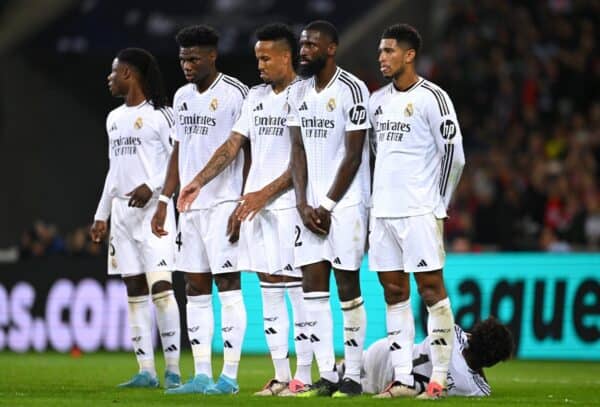






Fan Comments